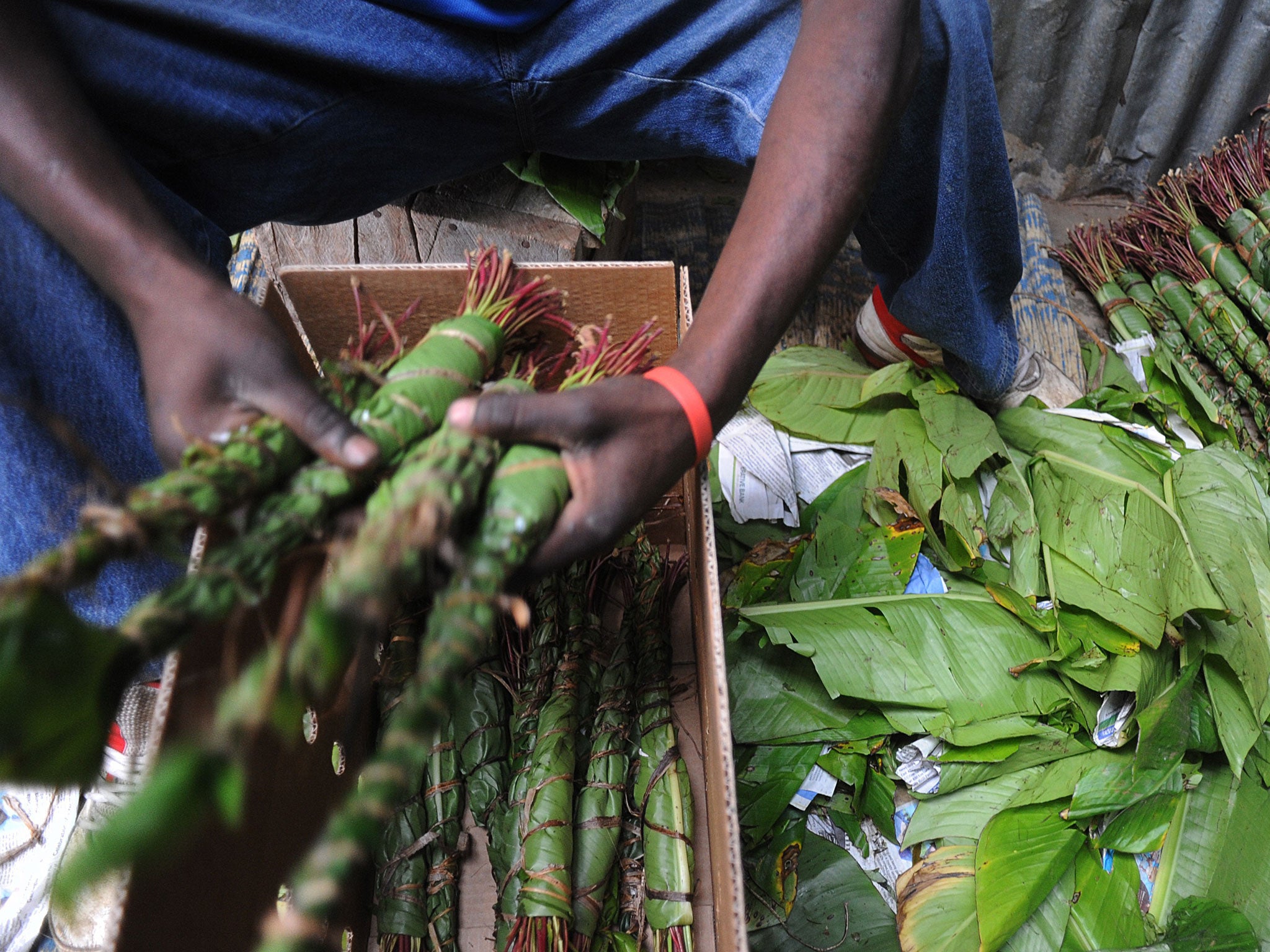Kenya funds lawsuit against Theresa May’s ban on herbal stimulant khat
Trader claims criminalising stimulant herb violates human rights of African users in UK

Your support helps us to tell the story
From reproductive rights to climate change to Big Tech, The Independent is on the ground when the story is developing. Whether it's investigating the financials of Elon Musk's pro-Trump PAC or producing our latest documentary, 'The A Word', which shines a light on the American women fighting for reproductive rights, we know how important it is to parse out the facts from the messaging.
At such a critical moment in US history, we need reporters on the ground. Your donation allows us to keep sending journalists to speak to both sides of the story.
The Independent is trusted by Americans across the entire political spectrum. And unlike many other quality news outlets, we choose not to lock Americans out of our reporting and analysis with paywalls. We believe quality journalism should be available to everyone, paid for by those who can afford it.
Your support makes all the difference.The Home Secretary, Theresa May, is being sued in a case funded by the Kenyan government after she criminalised a herbal stimulant using by thousands of Africans living in Britain.
Earlier this year the Home Office announced a ban on the import, sale and possession of khat (Catha edulis) – a leaf widely chewed or made into tea across Africa and the Middle East.
Its effects are said to be similar to, but less intense, than those of cocaine with side effects that can include insomnia and depression.
Now documents lodged at the High Court on behalf of a khat trader in London, and financed by the Kenyan government, claim the ban breaches the human rights of khat users.
It also suggests that Ms May did not take sufficient account of a recommendation by the Government’s own Advisory Council on the Misuse of Drugs that khat should remain legal. They are requesting a judicial review of the Home Office ban.
While the decision to ban khat has been relatively uncontroversial in Britain it has sparked protests in Kenya – where it is an important source of export income and provides a livelihood for thousands of farmers.
Kenya had exported about £15m of khat to the UK every year and the industry supports half a million people.
In response to the ban Kenya’s Deputy President, William Ruto, said the government would provide about £40,000 to fund the lawsuit while the local government in Meru – where Khat is cultivated – will provide a further £15,000.
At least one senior Kenyan senator is expected to come to Britain to give evidence in the case.
In July, announcing her decision to make khat a Class C drug, Ms May told the House of Commons that while the drugs advisory council had not recommended criminalisation there were other issues at stake. “The whole of northern Europe – most recently the Netherlands – have controlled khat,” she said.
“Failure to take decisive action and change the UK’s legislative position would place the UK at a serious risk of becoming a single, regional hub for the illegal onward trafficking of khat.
“The Government is concerned that we risk underestimating the actual harms of khat in our communities owing to the limitations of the evidence base available.”
But in the lawsuit, initiated by Mahamud Ahmed Mohammed, it is argued that chewing khat is a long-established social, cultural and ethnic custom within the Kenyan and Somali communities.

“The decision [ban] is incompatible with the Convention rights, under the Human Rights Act 1998, of the claimant and other members of the ethnic communities throughout the UK in which the use of khat is part of a long-standing and established social, cultural and ethnic custom and tradition,” it says. “The decision violates the claimant’s rights under Article 14 of the European Convention of Human Rights not to be discriminated against in respect of his right to express the cultural and ethnic customs within his ethnic group.”
Dipak Jotangia, Mr Mohammed’s solicitor, added that the ban would have serious economic consequences for a part of Kenya struggling with high unemployment. Mr Jotangia added that the district could easily become a “breeding ground for discontent”.
“Not only has khat been part of the way of life for the East African community for many years but it is also a vital part of the Kenya economy with over half a million people employed in its cultivation,” he said.
“This ban, which is against the recommendation of the Home Secretary’s own advisers, will have very serious consequences in Kenya. It is irrational and disproportionate.”
The Home Office said it would be contesting the legal action.
Join our commenting forum
Join thought-provoking conversations, follow other Independent readers and see their replies
Comments